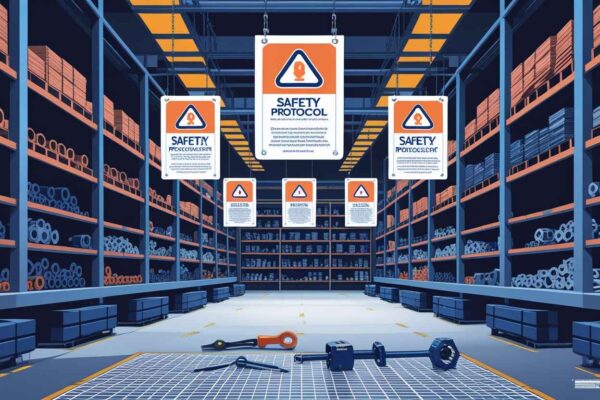
Is There Still Room for Tactile Branding in an Era of Screens and Scrolls?
In a world dominated by digital interfaces, it’s easy to assume that branding lives exclusively online. From social media icons to scrolling websites, most brand interactions now happen on screens. But as digital saturation grows, many businesses are rediscovering the power of tactile branding—physical elements that leave a lasting impression through touch and presence. Tactile…

Accounting in Plymouth: A Local Guide to Financial Services for Businesses and Individuals
Whether you’re a small business owner, a freelancer, or an individual managing your personal finances, accounting in Plymouth plays a crucial role in ensuring financial clarity and compliance. Plymouth, a historic port city in Devon, UK, is not only known for its maritime heritage but also for its growing business community. With this growth comes…

Shop the Best Dreams Bed for Unmatched Comfort
When it comes to sleep, comfort is key. A good night’s sleep is not just about resting; it’s about rejuvenating your body and mind for the day ahead. For this reason, investing in the right bed is one of the most important decisions you can make for your health and well-being. The right bed ensures…

London House Valuation Trends in 2025: What Homeowners Need to Know
The property market in London is always evolving, and 2025 is no exception. Various factors, including economic conditions, buyer demand, government policies, and technological advancements, are shaping House Valuation London across the capital. Whether you are planning to sell, refinance, or simply stay informed, understanding these trends is essential. This blog explores the key drivers…

New Luxury in Motion: Spring-Ready Enhancements for Your Volkswagen
Spring is an ideal time to improve your Volkswagen by adding luxury features alongside better comfort and distinctive style for your driving journeys. Automotive experts at LLLParts say that purposeful upgrades provide dual benefits, enhancing driving comfort and the visual appeal of your car. Your car transitions effortlessly into warm weather when you select premium…

Gatwick Chauffeur Service: The Secret to Stress-Free London Travel
Travelling to London is always an exciting endeavour, but it could quickly turn into a nightmare with endless traffic jams, unreliable taxis, and never-ending queues for public transport. Whether you are a businessman trying to catch a meeting or a tourist hell-bent on sightseeing, the last thing you need is travel anxiety. However, some options…
Beyond Beige: How to Bring Colour to Minimalist Spaces Without Overdoing It
Mixing minimalism has become a staple of modern interior design, beloved for its calming, clutter-free aesthetic and timeless appeal. However, as beautiful as neutral tones and sleek lines are, the risk of a minimalist space feeling cold or impersonal is real. The good news? Adding just a hint of color can inject warmth, personality, and…

5 Safety Protocols for Handling Industrial Fasteners
When you’re handling industrial fasteners, safety should be your primary concern to prevent accidents and maintain a smooth workflow. If you’re working in a large manufacturing facility or a small workshop, it’s essential that you understand and follow the safety protocols. Industrial fasteners may be fairly small in size, but they play a major role…

How Companies are Leveraging Gig work platforms to Fill Skill Gaps
The way businesses approach talent acquisition is changing rapidly. Traditional hiring models often struggle to keep up with evolving skill requirements, project-based work, and the increasing demand for specialized expertise. To stay agile, companies are turning to gig work platforms to bridge skill gaps efficiently. These platforms provide access to a diverse talent pool, offering…
Proses deposit dan withdraw yang cepat menjadi keunggulan utama sbobet slot.
Temukan pengalaman bermain terbaik dengan bergabung di nexus slot platform Slotwangi.
Kecepatan akses maksimal bisa Anda rasakan ketika menggunakan loginsbobetterbaru.com terbaru ini.
Sebelum memulai, pahami bahwa bermain di situs toto memerlukan pengetahuan tentang risiko finansial.
Trend gamification dalam togel online diimplementasikan slotwangi.co melalui fitur bonus dan reward menarik.
Trend RTP tinggi hingga 97.5% menjadi standar baru yang diterapkan idcuan.com pada semua game slot premium.
Optimasi mobile yang sempurna membuat slot pay4d mudah diakses via smartphone.
Platform https://promdevelop.com/blog/ menghadirkan inovasi terbaru sistem pay4d dengan mekanisme pembayaran 4 arah.
Platform michiganglowcouncil.org/login menghadirkan sistem pay4d terbaru dengan mekanisme pembayaran 4 arah yang inovatif.
michiganglowcouncil.org/contact menghadirkan inovasi terbaru dalam sistem toto togel pay4d dengan teknologi mutakhir.
How Market Trends Shape the Pawn Value of Luxury Watches
Luxury watches aren’t just about telling time—they’re status symbols, investments, and, let’s face it, a bit of a flex. But what happens when you’re in a pinch and need quick cash? That’s where pawnshops come in. The amount you can get for your watch at a pawnshop isn’t just about the brand or condition—it’s also…









